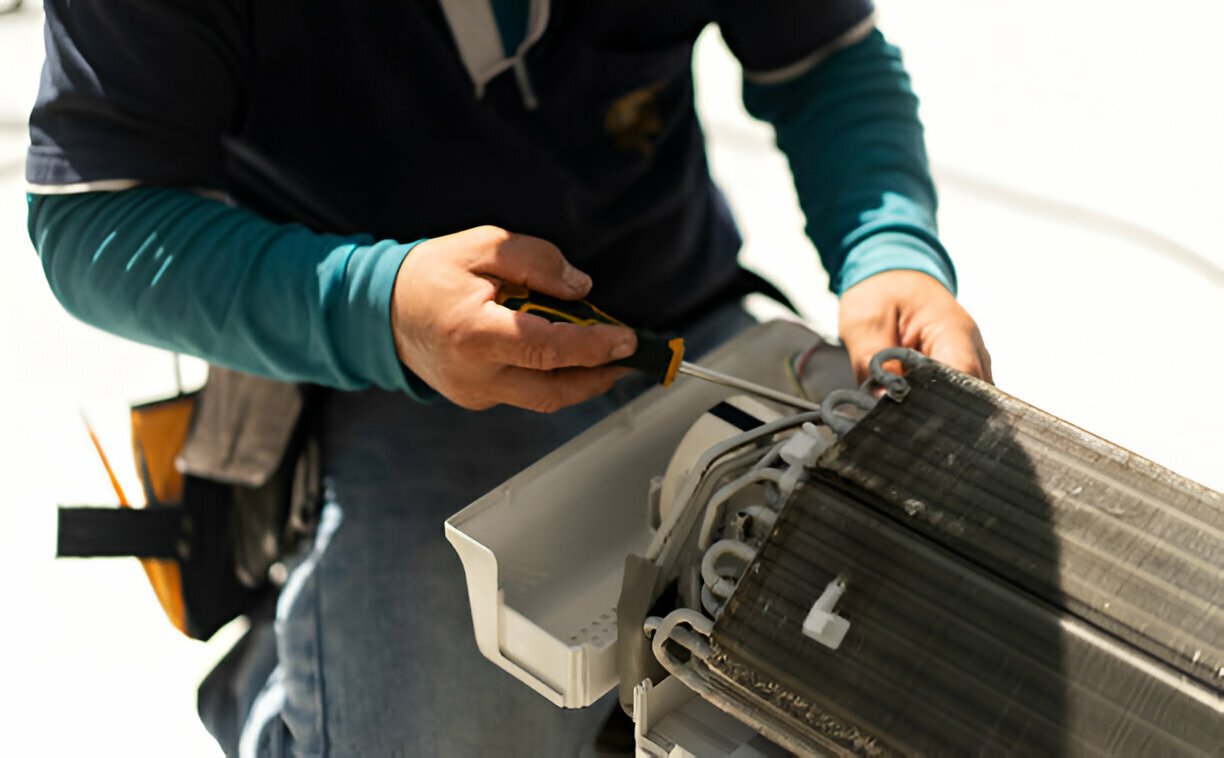
Determining whether to repair or replace your air conditioning system is a crucial decision for homeowners seeking optimal indoor comfort and energy efficiency. This comprehensive guide aims to provide valuable insights and practical considerations to help you make an informed choice regarding the maintenance or replacement of your AC unit.
Understanding Air Conditioning Systems
Air conditioning systems work by extracting heat from indoor air and expelling it outdoors, thereby cooling the indoor environment. These systems consist of various components, including a compressor, condenser coil, evaporator coil, refrigerant lines, and blower fan, all working together to regulate indoor temperature and humidity.
Factors Influencing the Repair vs. Replacement Decision
Age and Condition of the Unit
The age and condition of your air conditioning system are significant factors in determining whether repair or replacement is the most cost-effective option. Older units nearing the end of their lifespan or experiencing frequent breakdowns may be better replaced with newer, more efficient models.
Efficiency and Performance
Evaluate the efficiency and performance of your existing AC unit. If it struggles to maintain desired indoor temperatures, consumes excessive energy, or requires frequent repairs, it may be more economical to invest in a newer, more efficient system.
Repair Costs vs. Replacement Costs
Compare the cost of repairs versus the cost of purchasing and installing a new air conditioning system. In some cases, investing in repairs may provide a temporary solution, but if repair costs are substantial and recurring, replacement may offer better long-term value.
Energy Efficiency Upgrades
Modern air conditioning systems feature advanced energy-efficient technologies, such as variable-speed compressors and programmable thermostats, which can significantly reduce energy consumption and operating costs. Consider upgrading to a newer model with these features to maximize energy savings.
Advantages of Repairing
Cost Savings
Repairing minor issues or components of your air conditioning system can be a cost-effective alternative to replacement, especially if the unit is relatively new and well-maintained.
Preservation of Existing Infrastructure
Opting for repairs allows you to preserve your existing ductwork, electrical connections, and other infrastructure associated with your AC system, minimizing installation costs and disruptions.
Advantages of Replacement
Improved Energy Efficiency
Upgrading to a newer, more energy-efficient air conditioning system can result in significant energy savings over time, reducing your monthly utility bills and environmental impact.
Enhanced Comfort and Performance
Newer models offer improved cooling performance, more precise temperature control, and advanced features such as remote monitoring and scheduling, enhancing overall comfort and convenience.
Conclusion
Deciding whether to repair or replace your air conditioning system requires careful consideration of factors such as the age and condition of the unit, repair costs versus replacement costs, and desired energy efficiency upgrades. By weighing these factors and consulting with a reputable air conditioning professional, you can make a well-informed decision that maximizes indoor comfort and energy savings for your home.
For all your air conditioning service needs in Hervey Bay, contact Chilled Heat today. Our friendly and knowledgeable team is ready to assist you with professional installation, repair, and maintenance services. Ensure your home or business stays comfortable year-round with Chilled Heat.
One thought on “Making the Decision: Repair or Replace Your Air Conditioning System”